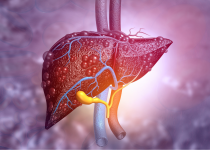Understanding Cancer Through Ayurveda: Root Causes and Prevention
Cancer is one of the most complex diseases of modern times. It is the second leading cause of death after heart disease. Characterized by abnormal cell growth, cancer can invade various parts of the body and cause serious damage if left untreated. Contemporary medicine focuses on treatments like chemotherapy, radiation, and surgery, which are highly effective in treating various stages of Cancer.
But they also give way to unwanted side effects. These side effects can be very severe sometimes hampering day to day lives of cancer survivors. Plus, modern science has yet not been successful in understanding the root cause of cancers and prevention of Metastasis (spreading of cancer cells to other parts of the body).
Ayurveda offers a holistic perspective to understand cancer from its root causes. Ayurvedic philosophy emphasizes the balance in mind, body, and spirit, and believes that disease, including cancer, arises from imbalances within the body’s fundamental energies, or doshas. By understanding these imbalances and the root causes of disease, we can support the body’s natural healing process and fight against deadly diseases like Cancer.
Ayurvedic Perspective on Cancer
In Ayurveda, health is defined as a balanced state of three primary life forces, known as doshas: Vata, Pitta, and Kapha. Each individual has a unique dosha constitution and our personality, characteristics, features, and basic health are based on these doshas.
When these doshas are in harmony, the body functions optimally. But when one or more doshas become imbalanced, they can contribute to various diseases, including cancer.
In ancient Ayurvedic texts- Charak Samhita and Sushrut Samhita, cancer is described as inflammatory and non -inflammatory swelling. It is mentioned as ‘Granthi’ (minor neoplasm) or ‘Arbuda’ (major neoplasm).
The three body doshas- Vata, pitta, and kapha, mutually coordinate to keep up the normal function of the body. Ayurveda has described 6 types of tumors based on the aggravated Dosha and the tissue involved – Vataj, Pittaj, Kaphaj, Medoj, Mamsaj, and Raktarbuda. Among these Mamsarbuda and Raktarbuda are described as incurable.
Vata is associated with the elements of air and space. It is responsible for cellular communication, nervous system function, and the movement of nutrients. When Vata becomes imbalanced, it can lead to irregular cell division, poor nutrient absorption, and reduced immunity, creating conditions that may contribute to the onset of cancer.
Pitta is linked to digestion, metabolism, and cellular transformation. Pitta imbalance can lead to excessive heat and inflammation within the body, potentially causing mutations and uncontrolled cell growth. Many cancers like skin and liver cancer are associated with inflammation and rapid cell proliferation and can have a strong Pitta component.
Kapha is responsible for growth, stability, and immune function. Imbalanced kapha can lead to stagnation, excess tissue growth, and the accumulation of toxins. This imbalance may manifest as tumors or cysts. Cancers associated with Kapha are breast cancer or certain types of lymphoma.
The concept of cancer caused by imbalanced doshas is very widespread. Though all the dosha imbalance can cause cancer, the chief emphasis is laid on Kapha. Sushrut Samhita has mentioned that due to excess of Kapha, the Arbuda (cancerous tumors) suppurate and keep growing, leading to cancer.
Root Causes of Cancer According to Ayurveda
Ayurveda attributes the root causes of cancer to both physical and mental factors. According to Ayurvedic philosophy, any disease arises from a disturbance in balance, which may be caused by lifestyle factors, environmental influences, mental stress, or an accumulation of toxins (ama) within the body.
According to Susruta, Trauma, Mithya Ahara, and Mithya Vihara, body toxins, and probable changes in local or systematic biochemical factors including hemodynamics led to the origin of Arbuda.
Stress, lifestyle factors, and environment are also the top causative factors for the development of Mamsarbuda, (excessive growth of muscle tissue). The excessive formation of Mamsa Dhatu may lead to various pathological conditions such as Galaganda
9swelling in neck), Gandamala (cyst or tumor in the shape of a button or boil), Arbuda (cancerous tumor), Granthi (painless abnormal growth or cyst in the body), and Adhimamsa (unwanted muscle growth). Top causes of Cancer according to Ayurveda:
AccumulatedToxins (Ama)
Ama, or toxins that accumulate due to poor digestion, an unhealthy diet, and a sedentary lifestyle are the leading cause of cancer. Undigested materials in the body turn into ama and disrupt cellular function. It also weakens the immune system, leading to a buildup of waste that can eventually result in cellular mutation and uncontrolled growth.
Dietary Imbalances and Agni (Digestive Fire)
Food is not properly digested due to lack of Agni leads to accumulation of ama. According to Ayurveda, heavy and processed diets lack prana (life force) leads to malfunctions in digestion and metabolism. An impaired digestive system creates conditions for doshic imbalance, nutrient deficiency, and ama formation, all of which are factors that can increase cancer risk.
Mental and Emotional Factors
Ayurveda also emphasizes the effect of mental and emotional states on physical health. Chronic stress, unresolved emotions, and suppressed anger or fear can disturb the balance of doshas and weaken the natural diseases.
Stress being one of the leading contributors to ill health can aggravate Vata, leading to cellular instability, while unresolved anger can fuel Pitta imbalances, resulting in inflammation.
Environmental and Lifestyle Factors
Environmental toxins such as pollution, pesticides, and chemicals, as well as lifestyle choices like smoking or excessive alcohol consumption, also disturb the dosha balance, promote the formation of ama, and lead to cancerous growth.
Ayurvedic Approaches to Preventing Cancer: Restoring Dosha Balance
Modern medicine has been successful in curing many types of cancer, yet no one can put a pin on its root cause and prevention. That is why people are now turning towards alternative medicine to understand the root cause and prevention of cancer. Ayurveda offers preventive and supportive therapies to manage cancer and other life-threatening diseases and improve quality of life.
By restoring balance through lifestyle modifications, dietary changes, and specific herbal remedies, Ayurveda supports the body’s natural healing mechanisms.
Panchakarma (Detoxification) for Cancer
Panchakarma for Cancer is an Ayurvedic detoxification process designed to eliminate ama and restore dosha balance. Panchakarma therapy for cancer involves techniques like massages, herbal steam baths, and purgation therapies. With the removal of unwanted toxins from the body, you can improve immune function, enhance digestion, and reduce the risk of dosha imbalances that lead to cancer.
Ayurvedic Herbs for Cancer – To Balance Each Dosha
- For Vata: Ashwagandha is a powerful herb to balance Vata. It is a powerful adaptogen, that can help stabilize cellular growth and reduce stress.
- For Pitta: Turmeric is a known anti-inflammatory substance. It helps to manage inflammation and reduce Pitta-related risks.
- For Kapha: Guggulu is a traditional Ayurvedic herb that helps to remove blockages and reduce Kapha-related accumulation.
These herbs are often combined with other herbs, minerals, and plant extracts to create ayurvedic supplements to promote overall balance and cellular health.
Ayurvedic Diet For Cancer Prevention
In Ayurveda, diet is one of the three pillars of good health and cancer prevention. A diet rich in fresh, organic fruits and vegetables, whole grains, and dosha-balancing spices is recommended. Ayurveda recommends staying away from excessively rich diets, processed food, and stale food to avoid accumulation of Ama.
- Warm, nourishing foods like soups and stews are best for Vata-type individuals and help support digestion.
- Cooling, alkaline foods such as cucumbers and leafy greens are best for pitta-type individuals and reduce inflammation.
- Light, spicy foods like ginger tea and bitter greens prevent stagnation and best suit kapha-type individuals to maintain balance.
By eating fresh, nutrient-rich food according to your dosha type, you can support digestive health, reduce ama buildup, and enhance immunity.
Yoga and Meditation for Mental Balance
Managing stress and promoting mental well-being are the most important aspects of Ayurvedic cancer prevention. Yoga and meditation help stabilize the mind, reduce stress, and prevent doshic imbalances. Breath control exercises can calm the nervous system, enhance cellular oxygenation, and reduce Vata-related anxiety.
Other than these practices, adopting ayurvedic at-home detox can help restore body balance and improve your immunity to fight against diseases and live a healthy life.
Conclusion: Adopting an Ayurvedic Lifestyle for Long-Term Health
Being one of the oldest healthcare sciences, Ayurveda offers a holistic approach to understanding and managing cancer.
By understanding and addressing the root causes of cancer through lifestyle, diet, detoxification, and mental well-being, Ayurveda encourages a preventive approach that aligns with the body’s inherent intelligence.
Ayurveda emphasizes prevention and balance as essential for reducing the risks associated with cancer and fostering overall well-being.
Adapting Ayurvedic lifestyle practices such as waking up early, following a consistent routine, and aligning with the natural rhythms of the day can promote dosha balance and prevent diseases like cancer.
By focusing on balancing doshas, reducing ama, and supporting the body’s natural healing processes we can empower ourselves and maintain body balance and harmony. Through a dosha-based approach and ancient wisdom, take proactive steps toward a healthier life.



